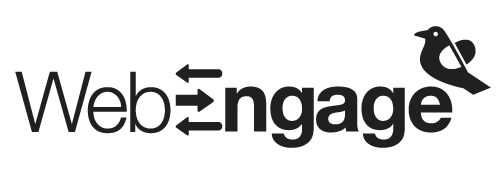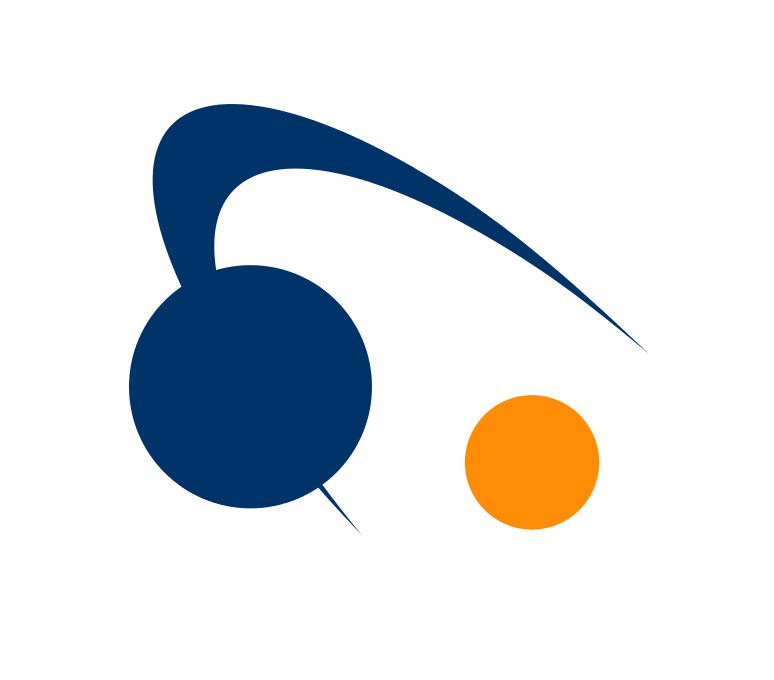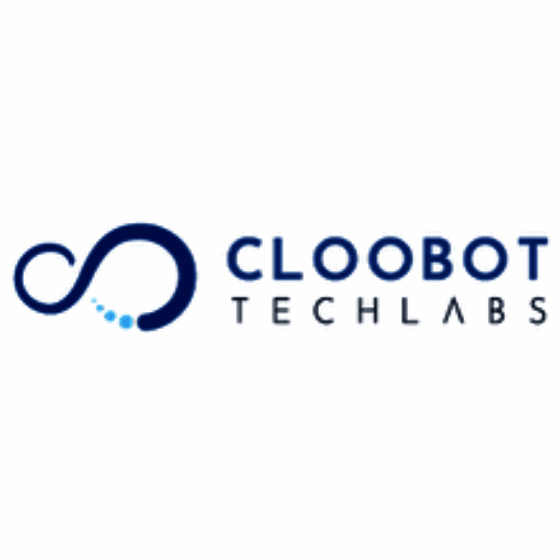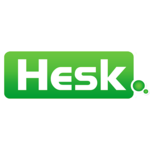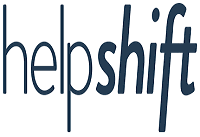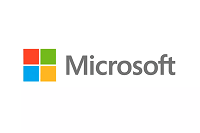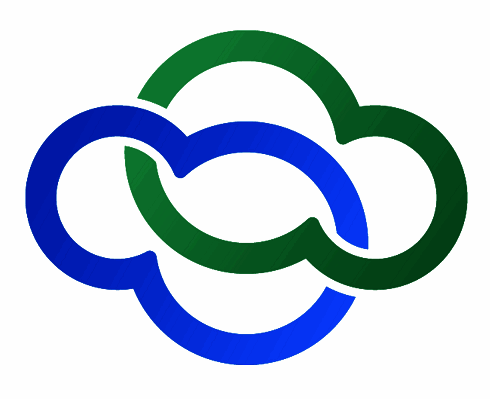Yes, Help Desk Software may be accessed from various devices and platforms. Most Help Desk Software these days is web-based, so users may access it from any device with an internet connection. Some software may also have a mobile app for quick access on smartphones and tablets. It is compatible with several operating systems, including Windows, macOS, iOS, and Android. This assures that customers may use the software from any device, increasing its convenience and flexibility.
List of 20 Best Help Desk Software
Experience top-notch customer service with LiveZilla. This comprehensive Live Support Software allows you to connect with your website visitors in real-time through Live Chats, Visitor Monitoring, and Operator to Operator Chats. It also includes a Ti...Read More LiveZilla
WebEngage is a cloud-based B2C marketing platform that maximizes user engagement by seamlessly managing interactions across various channels. With WebEngage, you can effectively connect with your audience through your website, mobile app (push notifi...Read More WebEngage
ngDesk is a help desk software that surpasses paid options in terms of features and functionality. With ngDesk, streamline your customer support process with incident alerts and customizable ticket resolutions. No more worrying about usage limits - n...Read More ngDesk
forBinary solution for building dynamic and multilingual mobile apps in a flash, without any coding knowledge. Our all-in-one platform features a robust CMS system to keep you connected with your audience, streamline your operations, and automate tas...Read More forBinary - HelpDesk
Paldesk solution for seamless customer communication. Keep your customers engaged through multiple channels and effortlessly handle leads. With Paldesk, tickets are automatically categorized for efficient organization, ensuring prompt responses. Simp...Read More Paldesk
Intercom is a communication platform for web and mobile businesses looking to enhance their customer experience. With our advanced features, you can effortlessly guide new users to interact with your app through personalized email and in-app messages...Read More Intercom
AgileCRM is a CRM solution, provides a range of features including contact management, marketing automation, web analytics, telephony, newsletter management, real-time activity alerts, and seamless third-party integrations. Its advanced tools and fun...Read More AgileCRM
Support.cc by 500apps is a customer support solution. Revolutionize the way you manage tickets, adhere to SLAs, and access a vast knowledge base to efficiently cater to your customers. With this robust support software, manual processes are a thing o...Read More Support.cc by 500apps
ResolveEasy, the powerful help desk software developed by Cloobot Techlabs. This innovative tool seamlessly integrates with WhatsApp to streamline customer service and internal problem resolution. With advanced features like multi-channel communicati...Read More Resolveeasy
ProProfs Help Desk is a ticketing solution designed for efficient customer support. With a shared inbox, email-style interface, pre-made responses, team email collaboration, prioritization tools, issue tracking, and detailed reporting, ProProfs Help...Read More ProProfs Help Desk
Hesk Help Desk, the forefront of the helpdesk industry, boasts exceptional customer support. Grow your business quickly and effectively with Hesks robust platform. Our centralized support system simplifies ticket management by categorizing, prioritiz...Read More Hesk Help Desk
CRM ON CLOUDS the CRM solution designed for small businesses and startups. Gain access to premium features at an unbeatable cost - absolutely free for up to 10 users and just $2 per additional user. Maximize efficiency by managing your sales, marketi...Read More CRM ON CLOUDS
Helpshift - the most comprehensive help desk software for mobile and web support. Elevate your customer service game with proactive assistance and interactive features. With Helpshift, connecting with your clients becomes hassle-free and delivering e...Read More Helpshift
Desk Migration is solution for hassle-free data transfer. Our intuitive software allows you to seamlessly transfer large volumes of data in a matter of hours, without any external aid. Our team of experts is available round-the-clock to provide suppo...Read More Help Desk Migration
Vtiger One is a cloud-based CRM solution tailored for small and medium-sized businesses. Our versatile platform includes Sales, Help desk, Marketing, Projects, and Inventory features, all seamlessly integrated with our cutting-edge customer One View...Read More Vtiger CRM
Say hello to Help Scout is a web-based help desk solution for exceptional customer support. With its intuitive interface, you can create multiple mailboxes and streamline collaboration across different departments or products. Say goodbye to complex...Read More Help Scout
Halp is ticketing system designed for seamless support request management within Slack and Microsoft Teams. It streamlines team collaboration, streamlines processes, and provides comprehensive analytics, making it a valuable tool for efficient servic...Read More Halp
Awesome Support is a ticketing system plugin designed to revolutionize your customer support experience. With an extensive selection of over 30 add-ons, you have the freedom to customize your support system to perfectly fit your unique business requi...Read More Awesome Support
Learn More About Help Desk Software
- What Is Help Desk Software?
- What Are The Recent Trends In Help Desk Software?
- Benefits Of Using Help Desk Software
- Important Factors To Consider While Purchasing Help Desk Software?
- What Are The Key Features To Look For In Help Desk Software?
- Why Do Businesses Need Help Desk Software?
- How Much Time Is Required To Implement Help Desk Software?
- What Is The Level Of Customization Available In Help Desk Software?
- Which Industries Can Benefit The Most From Help Desk Software?
- Conclusion
What Is Help Desk Software?
Help desk software is a useful tool for streamlining and improving the customer support process. Whether you run a small business, a huge corporation, or a service-based organization, having an effective and dependable help desk system is critical for providing excellent customer support and sustaining client satisfaction. Essentially, help desk software serves as a consolidated platform for managing and tracking consumer inquiries and support tickets.
It enables agents to respond to customer issues quickly and efficiently, provide timely updates, and address problems promptly. This not only enhances the entire consumer experience, but it also allows organizations to more effectively manage their resources. Aside from its basic job of customer support, help desk software provides a number of other features and tools to increase its functionality.
These include ticket management, automated routing and escalation, a knowledge base, reporting and analytics, live chat, and connections with other business systems. These features not only serve to speed the customer support process, but they also improve its convenience and effectiveness for both agents and consumers. One of the most significant benefits of investing in help desk software is the opportunity to increase efficiency and productivity.
Help desk software saves agents time by automating repetitive operations and providing a central point for monitoring customer concerns. It also guarantees that all customer inquiries are tracked and handled in a timely and orderly manner, limiting the possibility of tickets falling through the cracks. In addition to productivity, help desk software provides significant information into consumer needs and satisfaction levels.
Businesses can use data and analytics to acquire a better knowledge of their customers' pain spots, areas for improvement, and overall satisfaction with the support process. This information is critical for continuously improving the quality of customer service and identifying reoccurring issues that must be addressed. In today's fast-paced business world, client expectations are higher than ever, and organizations must find ways to match these demands in order to remain competitive.
Investing in help desk software not only enhances the customer support process, but also demonstrates a commitment to providing excellent service. With its numerous features and benefits, help desk software is an invaluable resource for any company trying to improve its customer support capabilities.
What Are The Recent Trends In Help Desk Software?
In recent years, the help desk software market has undergone substantial growth and improvement. As businesses prioritize customer pleasure and optimize support procedures, the need for efficient and effective help desk solutions grows.
In an ever-changing landscape, buyers must understand current trends in help desk software in order to make informed purchasing decisions.
1. Omnichannel Support: As customers increasingly use numerous channels to seek assistance, help desk software has evolved to provide omnichannel support. This enables firms to give a consistent customer support experience across many channels such as email, chat, social media, and phone. Omnichannel support improves response time and customer satisfaction by bringing all customer interactions into one place.
2. Artificial Intelligence (AI): The use of AI-powered capabilities in help desk software has become a popular trend in recent years. AI may automate mundane chores, recommend applicable solutions, and even react to simple questions, allowing agents to focus on more complicated challenges. AI-powered chatbots are becoming increasingly popular, providing 24/7 service and reducing client wait times. Furthermore, AI-based analytics enables firms to obtain useful insights into customer behavior and improve team performance.
3. Self-Service Choices: As people increasingly choose self-service choices, help desk software has evolved to include comprehensive self-service portals and knowledge libraries. These portals enable clients to obtain answers to their questions without having to contact support personnel, decreasing the workload for the help desk crew. Additionally, self-service solutions can be combined with AI-powered chatbots to provide a more smooth and efficient support experience.
4. Mobile-First Approach: With the development of remote work and the use of mobile devices, help desk software has made tremendous progress in providing a mobile-first experience. Mobile-optimized apps enable support agents to reply to issues while on the go, which improves response times and customer satisfaction. Furthermore, clients may access self-service options and receive support via their mobile devices, making it more convenient for them.
5. Integrations: Modern help desk software integrates with various company tools and platforms, giving teams a unified experience. These integrations enable support agents to access pertinent client information and give more personalized assistance. Integrations with project management, CRM, and communication applications can help to expedite operations and improve team cooperation.
Benefits Of Using Help Desk Software
As a business owner, you understand the value of offering exceptional customer service. Whether you are a small start-up or a major organization, keeping a high level of client happiness is critical to success. This is where the support desk software comes in. Help desk software is an effective tool for streamlining your customer support processes, making it easier and more efficient to serve your clients.
Here are the main advantages of adopting help desk software for your business:
1. Centralized Communication: One of the key advantages of employing help desk software is that it provides a single platform for all client communications. This means that all of your client inquiries, complaints, and feedback are collected in one location, making it easier for your support personnel to access and reply to them quickly.
2. Increased Efficiency: Using help desk software allows your support team to automate routine processes like creating tickets, assigning them to the appropriate agent, and sending automated responses. This saves time and allows your team to focus on more complicated problems, increasing efficiency and productivity.
3. Increased Customer Satisfaction: Help desk software enables you to track and manage all of your customer interactions, ensuring that no inquiries go overlooked or unsolved. This can dramatically increase customer satisfaction because your consumers will feel heard and respected.
4. Improved Organization: The program categorizes your customer inquiries and tickets, making it easier to manage, prioritize, and handle issues. This ensures that no customers are kept waiting for an extended period of time, and that each query receives the attention it deserves.
5. Analytics And Insights: Most help desk software includes reporting and analytics tools that provide useful information about your customer support processes. You may monitor metrics like response time, resolution time, and customer satisfaction rates to find areas for improvement and make data-driven decisions.
6. Cost Savings: While investing in help desk software may appear to be an unnecessary expense, it can ultimately save you money. By automating common processes and increasing efficiency, you can minimize your support team's workload, resulting in cheaper labor expenses. Furthermore, the software's insights might assist you uncover cost-cutting and process-improvement opportunities.
Important Factors To Consider While Purchasing Help Desk Software?
With so many options on the market, it might be difficult to choose the best help desk software for your organization. To make an informed decision, various aspects must be considered to evaluate whether the program is appropriate for your organization's needs.
Here are some essential considerations to consider while selecting help desk software:
1. Features And Functionality: The help desk software's features and functionality are the most important factors to examine. It should have the tools and capacities to meet your organization's support needs. Ticket management, knowledge base, live chat, automation, and reporting are some of the most important elements to consider.
2. Integration And Compatibility: To ensure smooth operations, integrate the help desk software with your existing systems and tools. Make sure the program is compatible with your present IT infrastructure and integrates properly with other applications you use. This will save you both time and work in the long run.
3. Scalability: As your firm expands, so will your support requirements. As a result, it is critical to select help desk software that is scalable and can support your organization's future growth. This will spare you the trouble of transitioning to a new platform as your company expands.
4. Usability: Even non-technical users should find the product straightforward to use and navigate. It should have a straightforward and user-friendly interface that allows your support personnel to submit requests and customers to find answers to their questions.
5. Customer Support: Good customer service is essential when it comes to help desk software. Make certain that the product provides appropriate help channels and has a dependable and responsive customer care team. This will ensure that any issues or questions are resolved quickly, reducing downtime and disturbances to your support operations.
6. Cost: The price of the software is, of course, an important issue to consider. However, it is critical to go past the price tag and examine the software's utility and possible ROI. see your organization's budget and examine various software solutions to see which one provides the most value within that budget.
7. Security: With a rising number of cyber threats, it is critical to select help desk software that includes strong security measures. Look for software that provides data encryption, secure communication routes, and regular upgrades to protect your critical customer and company information.
What Are The Key Features To Look For In Help Desk Software?
As a buyer looking for the best help desk software, it's critical to understand the main features and functionalities that will not only suit your current requirements but also help you scale your organization.
Here are some key features to consider:
1. Ticket Management: One of the most important functions of help desk software is the ability to create, track, and manage customer support requests. Look for a system that provides configurable ticket forms, effective routing, and automatic responses to guarantee that customer issues are resolved quickly and efficiently.
2. Multichannel Support: In today's digital age, customers want support across a variety of channels, including email, chat, phone, and social media. Make sure the software you select has multichannel support to manage consumer inquiries from many platforms.
3. Knowledge Base: A comprehensive knowledge base is a crucial tool for any help desk application. Customers can get answers to frequent questions without having to contact support. Look for software that includes a user-friendly and customized knowledge base to encourage self-service and lessen the workload on your support crew.
4. Automation: Automation is an important feature that can save time and effort for your team. Look for software that has automated workflows, scripted responses, and ticket routing rules to help you optimize your support procedures and increase efficiency.
5. Reporting And Analytics: Using data-driven insights, you may better understand your clients' needs and optimize your support tactics. Look for help desk software with advanced reporting and analytics capabilities, including as response time, ticket volume, and customer satisfaction ratings.
6. Integrations: By connecting your support desk software to other applications and platforms, you can improve its functionality. Consider software that connects with your current CRM, project management, or communication systems to provide a more seamless support experience for your consumers.
7. Mobile App: In today's fast-paced world, businesses need mobile-friendly support desk software. Make sure the software you chose includes a dependable mobile app that allows your team to handle tickets and answer to client inquiries on the go.
Why Do Businesses Need Help Desk Software?
Businesses require help desk software to provide effective and structured customer service. Companies must now provide timely and effective customer service in order to compete and meet rising customer expectations. Help desk software provides a consolidated and efficient approach for responding to client inquiries, complaints, and technical concerns. It saves time and effort by automating manual processes like ticket creation and assignment.
Furthermore, it enables organizations to manage and monitor the status of consumer inquiries, resulting in prompt resolution and customer satisfaction. Additionally, help desk software allows organizations to collect and analyze valuable consumer data, which can then be used to improve products and services. With capabilities such as knowledge bases and self-service portals, help desk software enables users to find solutions on their own, lessening the pressure on support workers. Overall, investing in help desk software may improve the customer experience and a company's reputation, making it a must-have tool for any firm.
How Much Time Is Required To Implement Help Desk Software?
The deployment time for help desk software varies based on a number of factors, including the product's complexity, the size of the organization, and the current IT infrastructure. However, properly implementing help desk software might take anything from a few weeks to many months. The first step in deploying help desk software is to examine the present IT support procedures and determine the organization's specific needs and goals.
This could take anything from a few days to a week, depending on key players' availability and the project's complexity. Next, the firm must choose the appropriate software to match its needs. This can include researching multiple suppliers, demoing software, and negotiating contracts, which may take several weeks. Once the software has been selected, the implementation procedure can begin.
This includes installing the software, configuring it to work with the organization's processes, and migrating existing data. The time necessary for this stage varies depending on the complexity of the software and the amount of data to be moved. Following the initial setup, the program must be evaluated and any faults rectified before it can be deployed throughout the firm.
This testing phase could last from a few weeks to a month, depending on the size of the company. Finally, the program can be delivered to all users, with training available to ensure a smooth transition. The time necessary for this phase will be determined by the number of users and their familiarity with the software. It is crucial to highlight that, while the implementation process may take some time, the benefits of properly deployed help desk software can considerably increase the efficiency and effectiveness of IT support over time. To achieve a successful and timely rollout, the implementation process must be adequately planned and resources allocated.
What Is The Level Of Customization Available In Help Desk Software?
When choosing help desk software, one important factor to consider is the level of customization it provides. This refers to the capacity to modify the program to your organization's exact needs and requirements.
Here are some key aspects to consider when considering the level of flexibility possible in help desk software.
1. Customization Options: The first item to consider is the software's customization possibilities. This may include branding, ticketing workflows, reporting, and user permissions. A decent help desk software should provide a number of options for customizing the interface and functionality to meet your specific company requirements.
2. Branding: Does the program allow you to customize the user interface with your company logo, brand colors, and other visual elements? This is critical for ensuring brand consistency and providing a seamless consumer experience.
3. Ticketing Workflows: Each firm has its own procedures for handling customer support tickets. Make sure the help desk software you chose allows you to adjust ticket forms, categories, and escalation criteria based on your individual procedures.
4. Reporting: Reporting is critical for evaluating your customer support team's performance and identifying areas for improvement. Look for software that allows you to create customized reports and dashboards to monitor the metrics that are important to your organization.
5. User Permissions: Depending on your organization's size and structure, you may need to grant different levels of access to different team members. The software should allow you to configure specific user permissions to limit who has access to which functions and data.
6. Integration With Other Tools: In addition to personalizing the software, you may want to combine it with the other tools and systems used by your team. Check that the product provides simple integration choices and supports your desired integrations.
Which Industries Can Benefit The Most From Help Desk Software?
Help desk software is an invaluable resource for any company or organization looking to boost efficiency and improve customer service. However, certain sectors may profit even more from deploying a help desk software solution.
Let's explore, which sectors can gain the most from help desk software and how it can help them run more efficiently.
1. IT And Technology Industry: IT and technology organizations frequently receive a large number of technical assistance requests from clients. These inquiries can be successfully managed and prioritized using reputable help desk software, resulting in faster response times and more customer satisfaction. Furthermore, help desk software can track and analyze reoccurring issues, allowing IT staff to discover and resolve systematic issues.
2. Healthcare Industry: Patient care is critical in the healthcare industry, and help desk software can assist improve it significantly. Doctors, nurses, and other medical professionals can utilize the program to improve internal communication and requests, reducing response times and increasing patient care. Furthermore, help desk software with secure data management capabilities can help healthcare firms comply with stringent privacy rules.
3. Education Industry: Educational institutions handle a significant amount of internal and external questions, which range from admissions and enrollment to technological assistance for students and teachers. A help desk software can assist streamline and automate these operations, allowing staff to focus on more important activities like curriculum development and student support.
4. E-commerce Industry: In today's business environment, e-commerce enterprises rely on digital platforms to provide customer assistance. A help desk software with live chat and social network interfaces can enable online businesses deliver real-time support to their consumers, resulting in a more seamless shopping experience. Additionally, help desk software can help manage product returns, refunds, and swaps more effectively.
5. Government And Public Industry: Every day, citizens submit a vast number of service requests to government agencies and public sector firms. A help desk software can assist these organizations manage and track these inquiries more efficiently, resulting in enhanced openness and responsibility. It can also be used for internal management, such as providing IT help to government staff.
Conclusion
Finally, selecting the correct help desk software for your business may significantly improve customer happiness, optimize internal operations, and boost overall productivity. However, before making a purchase, you should evaluate your individual requirements, budget, and desired characteristics. First, assess your organization's size and the volume of client requests it regularly receives.
This will assist you decide what level of functionality and support you need from a help desk system. Next, prioritize the capabilities that are most critical to your company, such as ticket management, automation, reporting, and integrations with other applications. It is also critical to ensure that the software is user-friendly and adaptable to your specific operations.
Comparing price plans and reading customer reviews can also provide useful information about the software's performance and customer support. Take advantage of free trials and demos to test the functionality and determine whether it matches your needs. Finally, consider the possibilities for future expansion and scalability. It is critical to select help desk software that can evolve and expand with your company.
In conclusion, by carefully considering your requirements, studying available solutions, and taking advantage of trials and demos, you can make an informed selection when choosing help desk software that will smoothly support your business and give an amazing client experience.
Help Desk Software FAQ's
Can Help Desk Software Be Accessed Across Multiple Devices And Platforms?
Is Help Desk Software Future-Proof And Adaptable To Emerging Technologies Like AI, Blockchain Or IoT?
Yes, help desk software is intended to be future-proof and adaptable to new technologies like AI, blockchain, and IoT. With the rapid growth of technology, help desk software is regularly updated to stay relevant and interface with new technologies.
Many help desk software solutions now support AI-powered chatbots, blockchain-based security, and IoT device tracking. This ensures that firms can successfully handle customer assistance demands while keeping up with the latest technological advancements.
Is There A Free Trial Offered To Assess Help Desk Software Before Committing?
Yes, many help desk software vendors provide free trials to prospective users. This allows them to test the program and determine whether it fits their requirements before making a commitment. Free trials normally last 14-30 days and allow consumers access to all features and functionalities. It's an excellent method to evaluate the product and make an informed decision before committing to a long-term subscription.
Does Help Desk Software Offer Data Security Features And Meet Regulatory Compliance Standards?
Yes, most current Help Desk Software has robust data security protections and adheres to industry standards like as GDPR, HIPAA, and PCI DSS. They protect sensitive information via encryption, user access limits, and data backup methods. They also include capabilities like as user authentication and audit logs to ensure compliance with regulatory requirements. This assures the security and integrity of your data when using Help Desk Software.
Can Help Desk Software Integrate Seamlessly With Existing Tools And Platforms?
Yes, most current help desk software solutions integrate seamlessly with existing tools and platforms. This provides for a more efficient workflow and eliminates the need to manually transfer data between systems. APIs and connectors enable help desk software to easily connect to popular tools such as CRMs, project management systems, and communication platforms. This not only boosts productivity, but also keeps all data synced and up to date.


